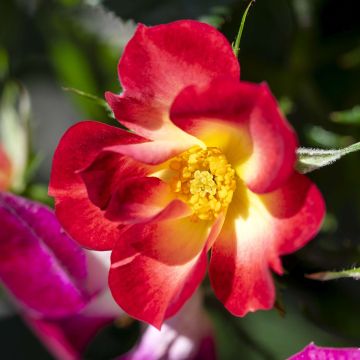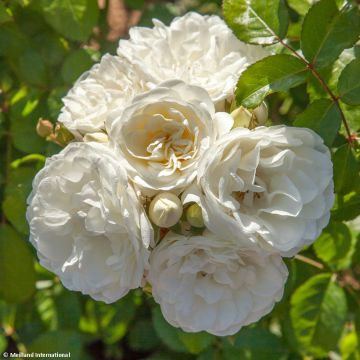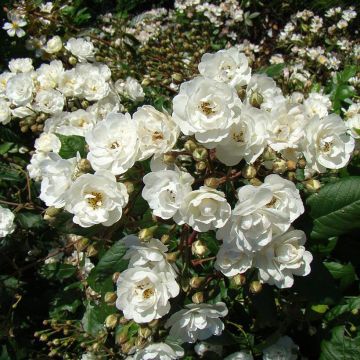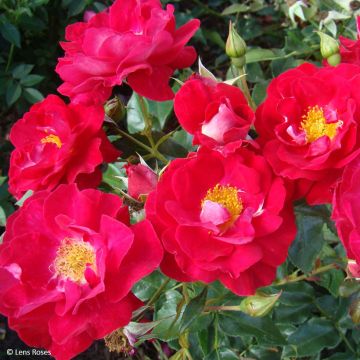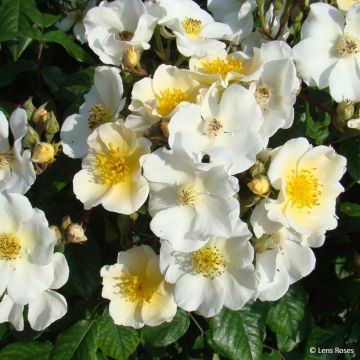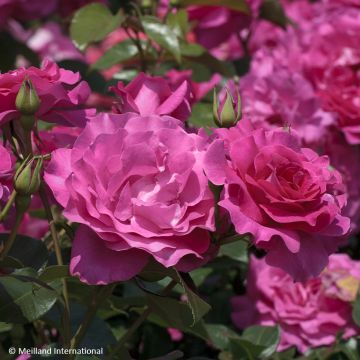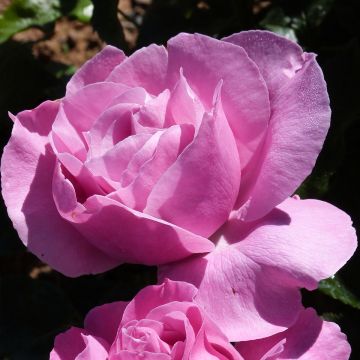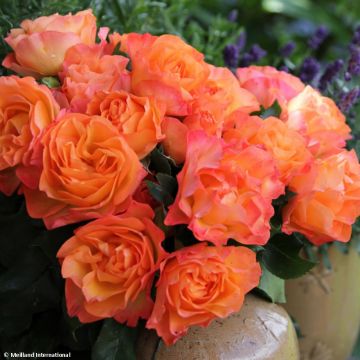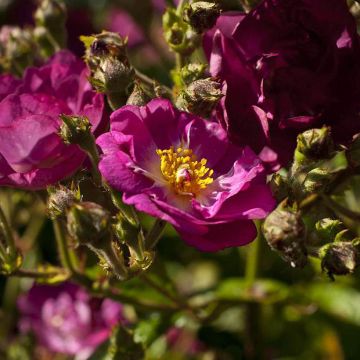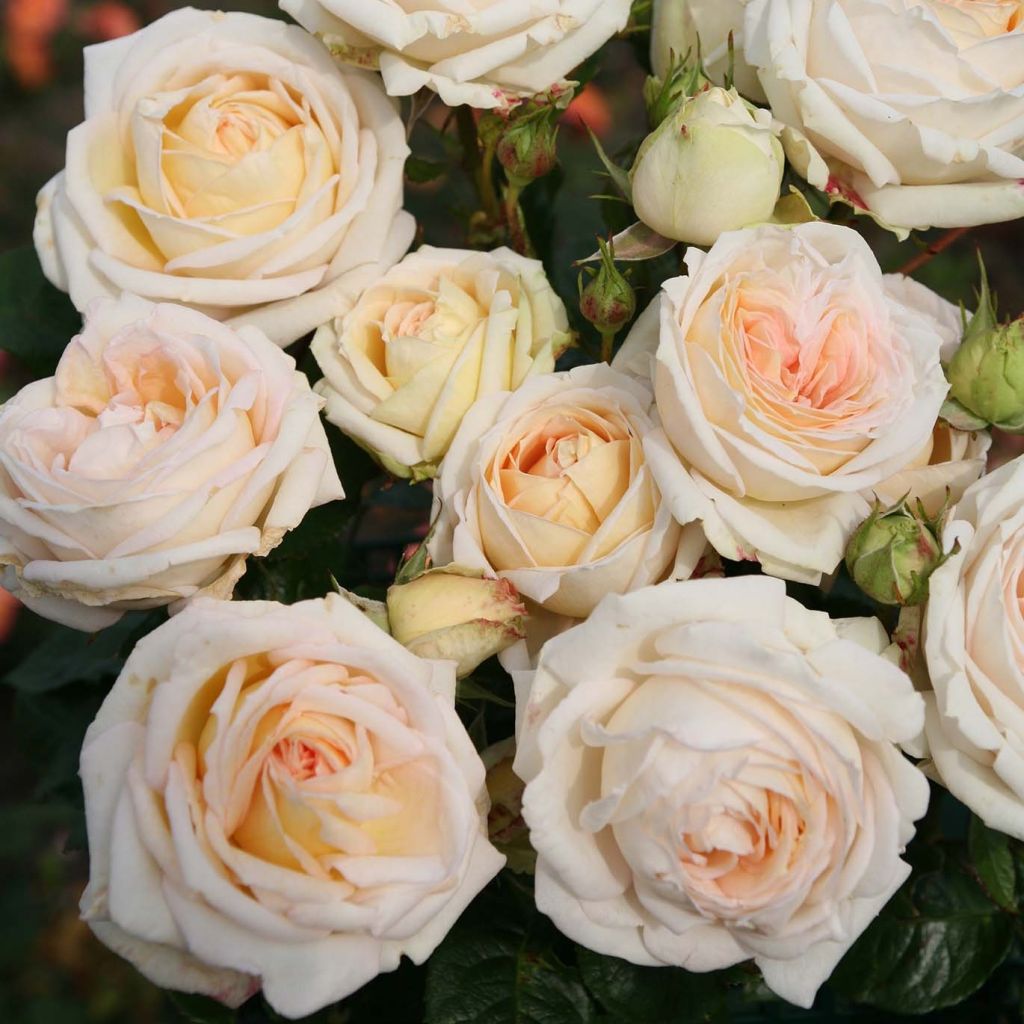

Rosa x Thé - Parfuma 'Madame Anisette' - Hybrid Tea Rose
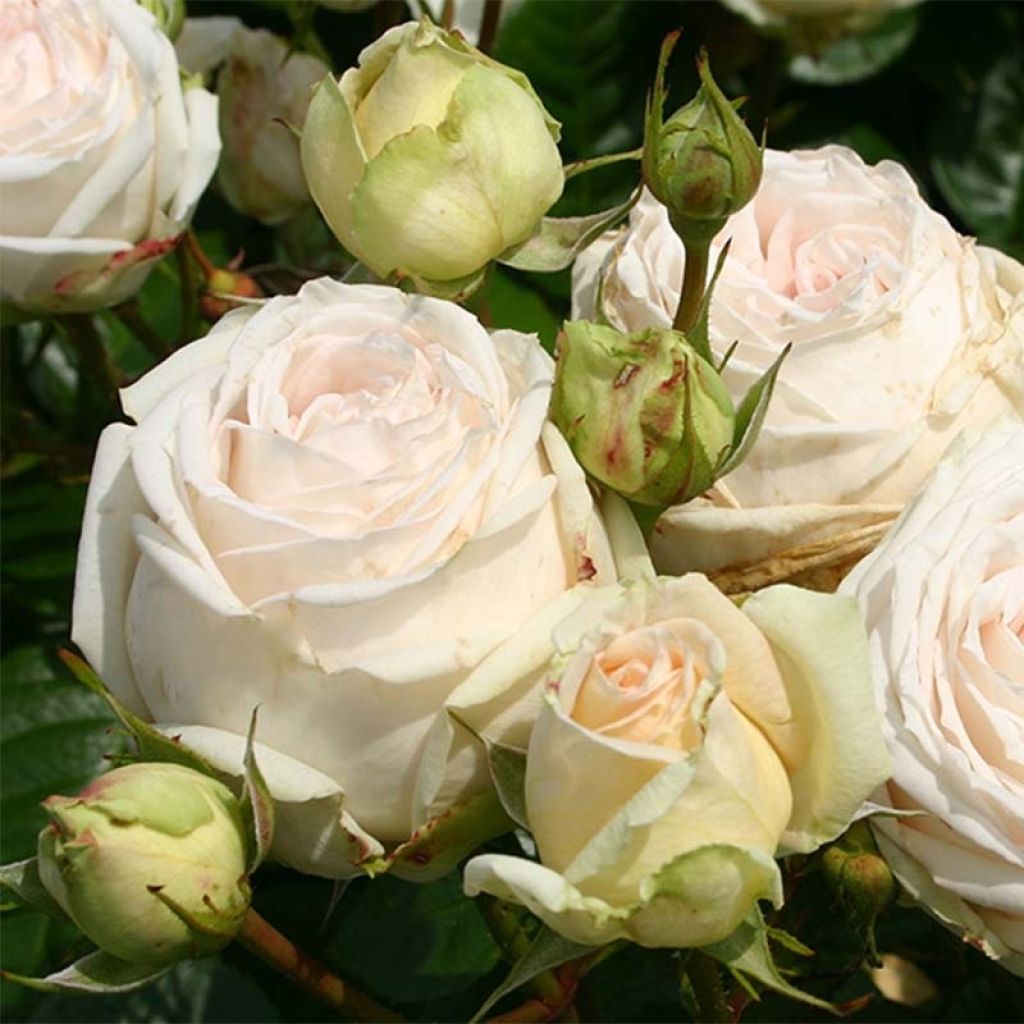

Rosa x Thé - Parfuma 'Madame Anisette' - Hybrid Tea Rose
Rosa x Thé - Parfuma 'Madame Anisette' - Hybrid Tea Rose
Rosa x Thé PARFUMA® Madame Anisette® 'Korberonem'
Korberonem
Thanks to Shauna for the order preparation and Violette from the shipping department, the rose bush received is very small, despite a broken branch during transportation, it still appears healthy to me. Planted near the 'Alphonse Daudet' variety, I am now patiently waiting for it to take root... or not.
Thierry, 11/05/2022
Special offer!
Receive a €20 voucher for any order over €90 (excluding delivery costs, credit notes, and plastic-free options)!
1- Add your favorite plants to your cart.
2- Once you have reached €90, confirm your order (you can even choose the delivery date!).
3- As soon as your order is shipped, you will receive an email containing your voucher code, valid for 3 months (90 days).
Your voucher is unique and can only be used once, for any order with a minimum value of €20, excluding delivery costs.
Can be combined with other current offers, non-divisible and non-refundable.
Why not try an alternative variety in stock?
View all →This plant carries a 6 months recovery warranty
More information
We guarantee the quality of our plants for a full growing cycle, and will replace at our expense any plant that fails to recover under normal climatic and planting conditions.

Description
The Rose 'Madame Anisette/ Mme de La Vallière' is a gem from the Parfuma collection developed by the rose breeder Kordes Rosen to offer demanding enthusiasts exceptional roses on perfectly robust plants, tested under the harsh German climate. On its beautiful disease-resistant foliage, umbels of beautiful bell-shaped roses in a creamy white colour, delicately shaded with pale apricot at the centre, bloom, exuding a surprisingly aromatic fragrance dominated by aniseed notes. Stunning in borders, with small bushes or perennials, its flowers are lovely in a vase.
The Rosa x Thé 'Madame Anisette/ Mme de La Vallière' ('Korberonem'), introduced in 2013, obtained the highly selective German ADR label in 2014 for its exceptional disease resistance, among other criteria. This excellent variety has won numerous awards in international competitions, such as the Perfume Cup in Lyon and the Golden Rose in Courtrai. Like all roses in the 'Parfuma' series, it bears a name inspired by "royal favourites" that have marked our French history. Madame de La Vallière was Louis XIV's first mistress.
An upright and bushy habit, a bit stiff, characterises the vigorous bush. It reaches up to 1.20m (4ft) in height and 50cm (20in) in spread. Its long, thorny stems bear healthy, medium green, glossy leaves divided into five broad, finely dentate leaflets. Its flowering period is long, with successive waves from June to October if the soil remains moist. The large, almost white flower buds, enclosed in green sepals, open into globular and turbinate flowers measuring 7 to 8cm (3in), adorned with many tightly packed petals. The petals are light salmon pink in the centre of the flower and white cream on the outer edges. The roses are gathered in terminal clusters.
Their fragrance has been analysed by perfumers who describe it as follows: this rose, which seems so soft and tender, surprises with its truly unusual fragrance. The top note is very pronounced and aromatic. Dominant, it envelops the nose in an intense combination of aniseed and fragrant myrrh. Spice notes like lovage play a supporting role. With the flower's development, the soapy character of the rose in the heart note comes to the fore, surpassing the characteristic aroma of the young flower. Honey notes perceptible in the base note balance the rose. The fragrance of the flowers is at its peak in the morning, at noon, and in the evening.
This modern rose with large flowers, 'Madame Anisette', with its unique fragrance, romantic appearance of its flowers, and beautiful floribundity, will find its place in the garden in a large rose bed, at the front of a shrub bed, or as a standalone in a small well-maintained garden. Its moderate growth is also suitable for cultivation in a large pot to adorn the patio or balcony. The colour of its flowers pairs perfectly with pale pink roses (Prince Jardinier) and white roses (Jeanne Moreau, Jardins de Bagatelle). Also consider planting it near very easy-to-grow plants such as perennial geraniums (Geranium Rozanne, Blue Cloud, Anne Folkard, Nimbus, Orion), lavender, bellflowers (lactiflora, rapunculoides), catmints, snapdragons, foxgloves. Its flowers can be used to create bouquets with a nostalgic charm that will delicately perfume the house.
Report an error about the product description
Rosa x Thé - Parfuma 'Madame Anisette' - Hybrid Tea Rose in pictures
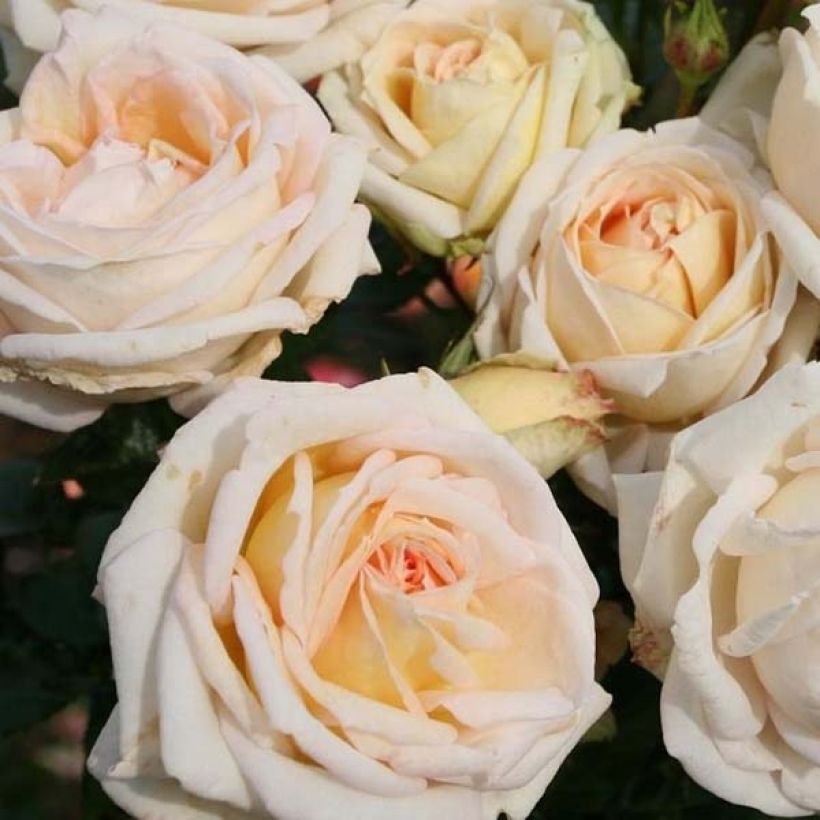

Plant habit
Flowering
Foliage
Botanical data
Rosa
x Thé
PARFUMA® Madame Anisette® 'Korberonem'
Rosaceae
Korberonem
Cultivar or hybrid
Planting and care
Planting your rose requires some preparation. Begin by working the soil to a depth of 25 cubic cm and adding a base amendment like blood, fish, and bone to the bottom of the planting hole. Remove the plant from its pot and position it by covering the top of the root ball with 3 cm (1in) of soil. Refill the hole and water generously to eliminate any air pockets. It's essential to water the rose regularly for a few weeks during dry weather to help the roots grow. Use a special rose fertiliser that stimulates plant flowering. Choose a sunny location or partial shade to plant your rose in hot regions.
Roses may develop unsightly spots at the end of summer, but this is a natural occurrence and doesn't harm the rose's growth.
Planting period
Intended location
Care
-
, onOrder confirmed
Reply from on Promesse de fleurs
Haven't found what you were looking for?
Hardiness is the lowest winter temperature a plant can endure without suffering serious damage or even dying. However, hardiness is affected by location (a sheltered area, such as a patio), protection (winter cover) and soil type (hardiness is improved by well-drained soil).

Photo Sharing Terms & Conditions
In order to encourage gardeners to interact and share their experiences, Promesse de fleurs offers various media enabling content to be uploaded onto its Site - in particular via the ‘Photo sharing’ module.
The User agrees to refrain from:
- Posting any content that is illegal, prejudicial, insulting, racist, inciteful to hatred, revisionist, contrary to public decency, that infringes on privacy or on the privacy rights of third parties, in particular the publicity rights of persons and goods, intellectual property rights, or the right to privacy.
- Submitting content on behalf of a third party;
- Impersonate the identity of a third party and/or publish any personal information about a third party;
In general, the User undertakes to refrain from any unethical behaviour.
All Content (in particular text, comments, files, images, photos, videos, creative works, etc.), which may be subject to property or intellectual property rights, image or other private rights, shall remain the property of the User, subject to the limited rights granted by the terms of the licence granted by Promesse de fleurs as stated below. Users are at liberty to publish or not to publish such Content on the Site, notably via the ‘Photo Sharing’ facility, and accept that this Content shall be made public and freely accessible, notably on the Internet.
Users further acknowledge, undertake to have ,and guarantee that they hold all necessary rights and permissions to publish such material on the Site, in particular with regard to the legislation in force pertaining to any privacy, property, intellectual property, image, or contractual rights, or rights of any other nature. By publishing such Content on the Site, Users acknowledge accepting full liability as publishers of the Content within the meaning of the law, and grant Promesse de fleurs, free of charge, an inclusive, worldwide licence for the said Content for the entire duration of its publication, including all reproduction, representation, up/downloading, displaying, performing, transmission, and storage rights.
Users also grant permission for their name to be linked to the Content and accept that this link may not always be made available.
By engaging in posting material, Users consent to their Content becoming automatically accessible on the Internet, in particular on other sites and/or blogs and/or web pages of the Promesse de fleurs site, including in particular social pages and the Promesse de fleurs catalogue.
Users may secure the removal of entrusted content free of charge by issuing a simple request via our contact form.
The flowering period indicated on our website applies to countries and regions located in USDA zone 8 (France, the United Kingdom, Ireland, the Netherlands, etc.)
It will vary according to where you live:
- In zones 9 to 10 (Italy, Spain, Greece, etc.), flowering will occur about 2 to 4 weeks earlier.
- In zones 6 to 7 (Germany, Poland, Slovenia, and lower mountainous regions), flowering will be delayed by 2 to 3 weeks.
- In zone 5 (Central Europe, Scandinavia), blooming will be delayed by 3 to 5 weeks.
In temperate climates, pruning of spring-flowering shrubs (forsythia, spireas, etc.) should be done just after flowering.
Pruning of summer-flowering shrubs (Indian Lilac, Perovskia, etc.) can be done in winter or spring.
In cold regions as well as with frost-sensitive plants, avoid pruning too early when severe frosts may still occur.
The planting period indicated on our website applies to countries and regions located in USDA zone 8 (France, United Kingdom, Ireland, Netherlands).
It will vary according to where you live:
- In Mediterranean zones (Marseille, Madrid, Milan, etc.), autumn and winter are the best planting periods.
- In continental zones (Strasbourg, Munich, Vienna, etc.), delay planting by 2 to 3 weeks in spring and bring it forward by 2 to 4 weeks in autumn.
- In mountainous regions (the Alps, Pyrenees, Carpathians, etc.), it is best to plant in late spring (May-June) or late summer (August-September).
The harvesting period indicated on our website applies to countries and regions in USDA zone 8 (France, England, Ireland, the Netherlands).
In colder areas (Scandinavia, Poland, Austria...) fruit and vegetable harvests are likely to be delayed by 3-4 weeks.
In warmer areas (Italy, Spain, Greece, etc.), harvesting will probably take place earlier, depending on weather conditions.
The sowing periods indicated on our website apply to countries and regions within USDA Zone 8 (France, UK, Ireland, Netherlands).
In colder areas (Scandinavia, Poland, Austria...), delay any outdoor sowing by 3-4 weeks, or sow under glass.
In warmer climes (Italy, Spain, Greece, etc.), bring outdoor sowing forward by a few weeks.






























